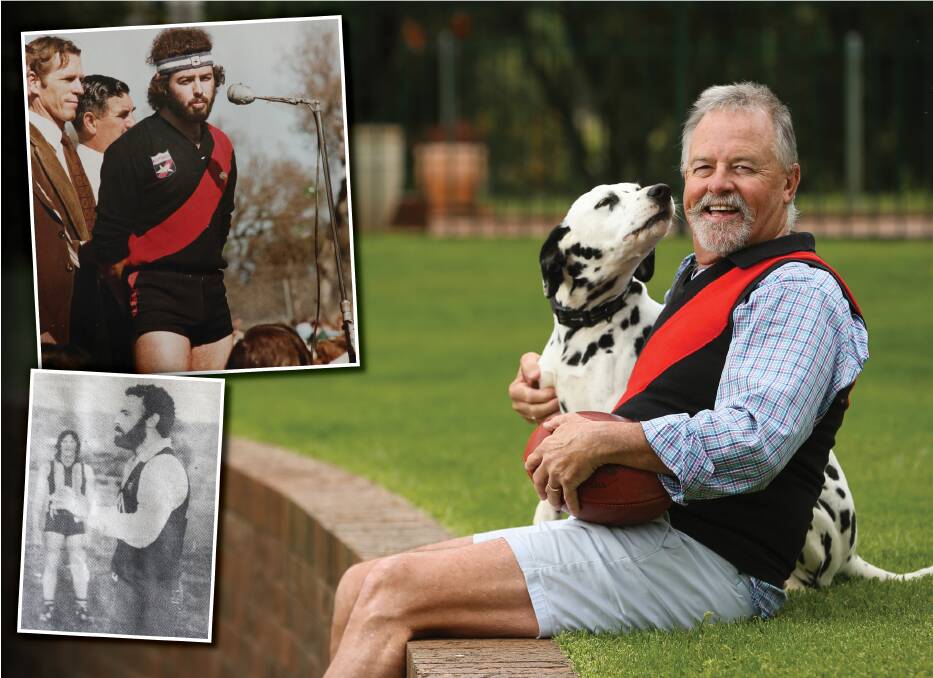
CON MADDEN was born and raised in Melbourne before arriving in Beechworth in the mid-1970s for his first gig as a secondary school teacher. The highly-skilled midfielder won two league medals and was a premiership player with the Bombers. He spent the latter part of his career with Tallangatta Valley and was involved in a famous grand final victory with the Hoppers in 1989. Madden caught-up with The Border Mail's BRENT GODDE.
Subscribe now for unlimited access.
or signup to continue reading
BRENT GODDE: You were born and raised in Melbourne?
CON MADDEN: We lived not far from Arden Street Oval in North Melbourne. My two younger brothers and I would kick a plastic football most of the time on the bitumen after school because we couldn't afford a leather footy and there weren't any parks nearby.
BG: You would always practice kicking on your opposite foot?
CM: It was a good skill to learn and I was proficient on both sides of my body throughout my career.
BG: You played all your junior football in Melbourne?
CM: I was fortunate enough to play in some talented sides and won back-to-back flags in the under-13s and under-17s. One of my team-mates, John Frazer went on to play VFL with North Melbourne and Collingwood.
BG: You were fortunate enough to be coached by Bob Berryman as a junior?
CM: The players used to adore Bob who is a coaching legend down there. I still remain in contact with Bob all these years later.
BG: You attended Melbourne University?
CM: I studied a degree in secondary education.
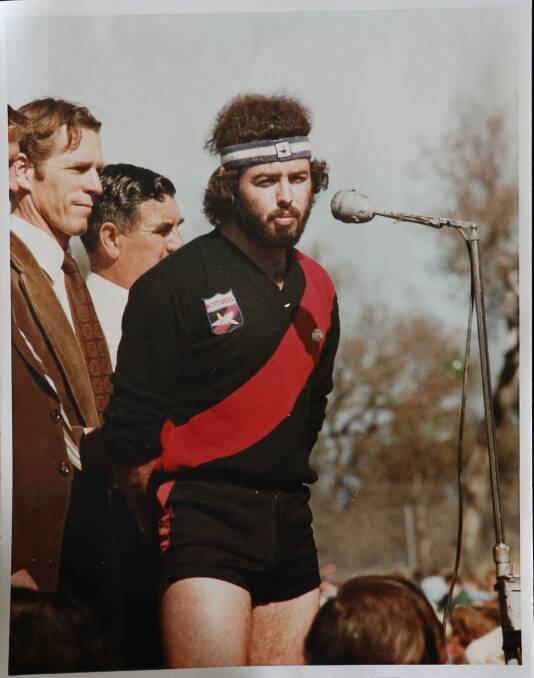
BG: You made your senior debut during the early 1970s for Kensington in one of the Melbourne suburban leagues?
CM: It was an extremely brutal competition with a lot of unsavoury incidents almost on a weekly basis.
BG: Your side Kensington had the ignominy of being rubbed out of the competition?
CM: We were playing South Melbourne Districts at Debney Park when one of the opposition players produced a gun during the match.
BG: It sounds like it was a jungle out there?
CM: There was a lot of bad blood between the two sides and it was a terrifying experience for me being a teenager in my first year of senior football.
BG: What happened?
CM: An all-in-brawl erupted so one of the opposition players ran into the clubrooms and returned with a gun.
BG: Wow, excuse the pun but was he a gun player?
CM: It wasn't a laughing matter at the time and basically everybody just ran for their lives. Fortunately there were no shots fired.
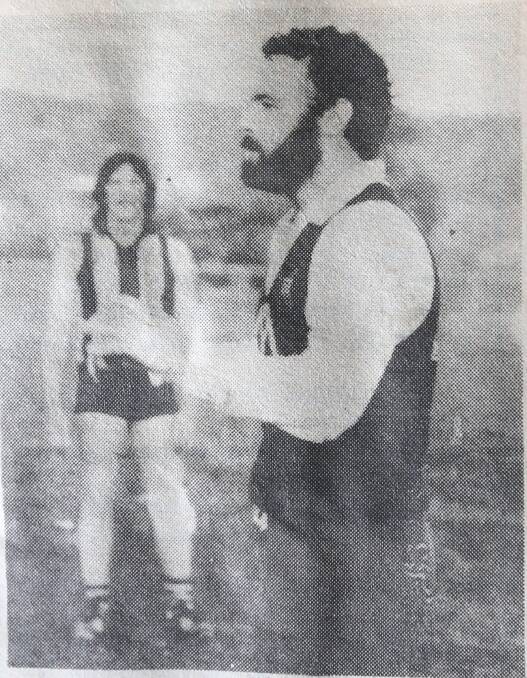
BG: No doubt a huge talking point at the time which would have sparked a media frenzy?
CM: It made the back page of the Truth newspaper in Melbourne and it was a massive story.
BG: What was the fallout?
CM: Both sides were immediately rubbed out of the competition. Being a young kid it was a huge relief for me because we were the top two sides and would have probably had to play South Melbourne Districts twice during the finals series.
BG: No doubt a bizarre incident but it wasn't totally unexpected?
CM: All the younger players were asked at training on the Thursday night before the game if they wanted to play or not because the previous time we played one of my team-mates suffered a broken jaw and never played much after that.
BG: You chose to play?
CM: It was one of the most brutal matches I have ever witnessed. A few players were knocked out before the first bounce. The captain-coach of the opposition was Wayne Dunne who was a prized fighter.
BG: The South Melbourne Districts were the most feared side in the competition?
CM: They had connections to the Painters and Dockers and I used to get scared arriving at the ground and seeing their spectators. It was fairly intimidating for me being an 18-year-old kid weighing 65kg and playing against some big units who loved to fight.
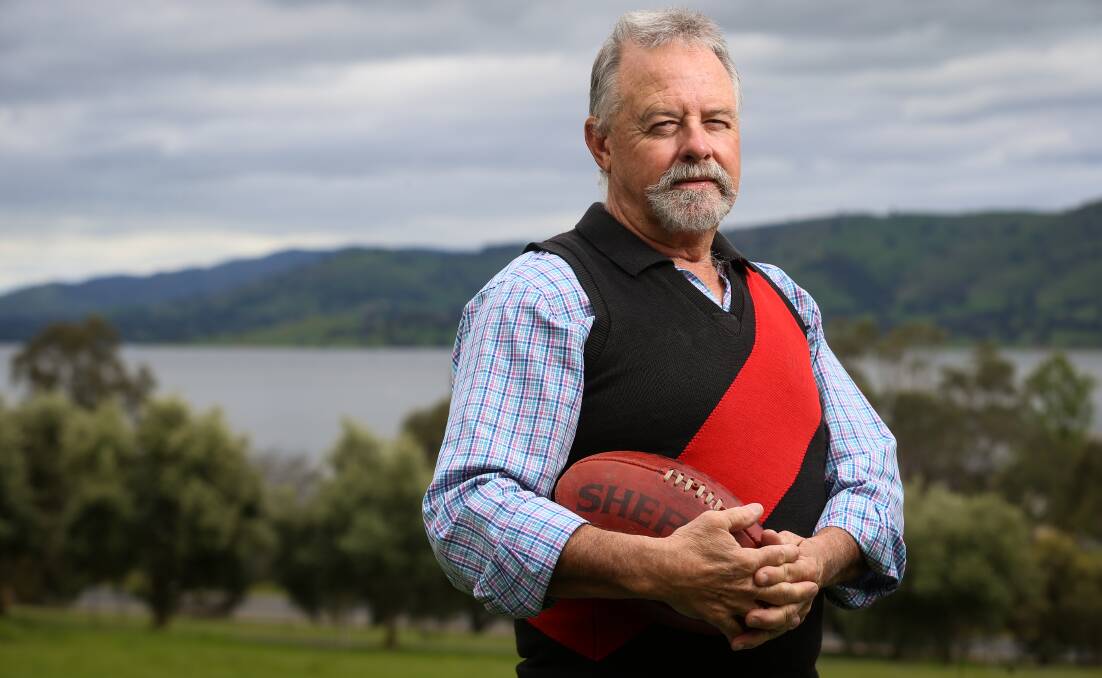
BG: The following season you played in the Northern Metropolitan league?
CM: We had to play against Collingwood Districts, Broadmeadows and Jacana. It was a bit like jumping out of the frying pan and into the fire.
BG: In 1978 you arrived at Beechworth?
CM: Beechworth was my first posting as a secondary school teacher after graduating from university.
BG: For those who didn't see you play, how would you describe yourself as a footballer?
CM: I regard one of my biggest assets as being proficient on both sides of my body which helped me find space and time. I also prided myself on my fitness and used to love training.
BG: My spies tell me that you were a prodigious kick of the football as well?
CM: I was a penetrating kick and I used to try and hurt the opposition by kicking long range goals.
BG: Where did you predominantly play?
CM: I played in the centre throughout most of my career.
BG: Beechworth boasted a handy side when you arrived?
CM: They had last won a flag in 1974 but played finals most years. Ian Harrison was a star ruckman and won three club best and fairests and it was a relatively young side on the way up.
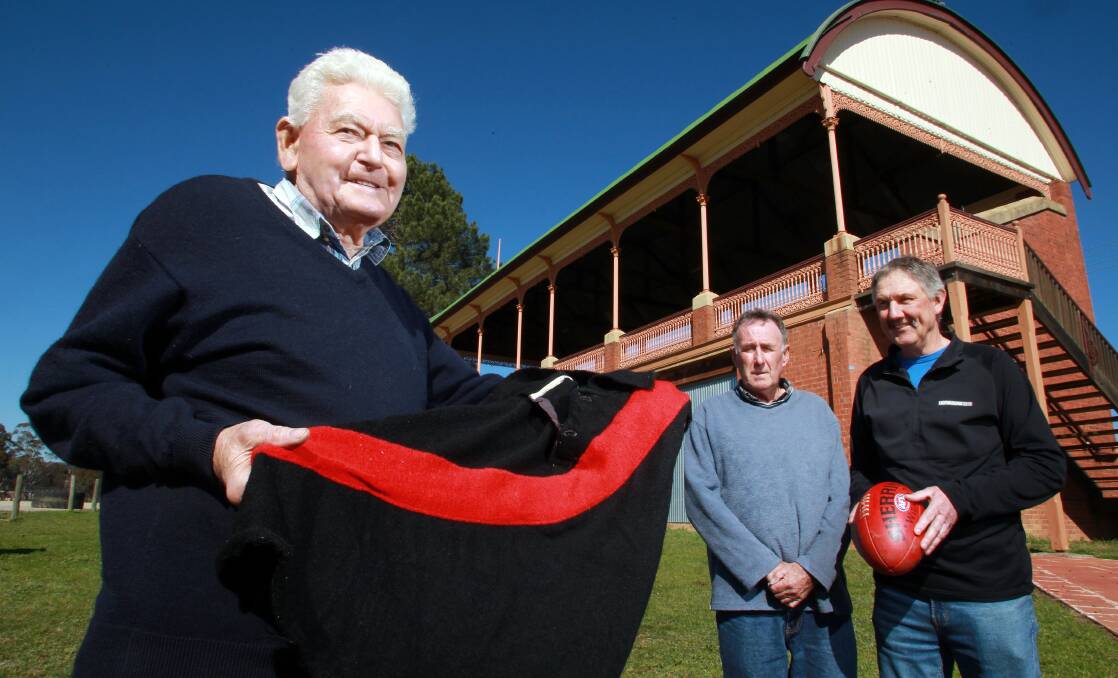
BG: Who was coaching the Bombers?
CM: Rob Forrest was the coach and I played in a grand final in my first season. We got flogged by Whorouly by 20 goals. Rob had a busted jaw and couldn't play.
BG: Beechworth picked up some handy recruits after its hefty grand final defeat?
CM: The club signed Mick Brennia and David Piney. Whorouly had star players in Norm Bussell who was a premiership player at Hawthorn and Jim McNamara.
BG: There was a steely resolve amongst the players in 1979 to avenge the grand final defeat of the previous year?
CM: I remember after one pre-season match we were coming home from Myrtleford and grabbed a few slabs and stopped at Murmungee. We had a few beers and made a pact we were going to win the flag that season.
BG: History says you were able to make amends in the 1979 decider?
CM: We won by 10 goals.
BG: Personally it was a satisfying season for you after also winning the Clyde Baker medal for the league best and fairest?
CM: I beat Chiltern's John 'Rowdy' Lappin by one vote who had won the medal the previous year. John won four league medals and I rate one of the most talented players who I saw playing in the bush.
BG: You are of the opinion that Lappin could have played at a much higher standard?
CM: I have no doubt that 'Rowdy' could have been an outstanding player in the O&M and even made the VFL if he put his mind to it.
BG: Some of your premiership team-mates were legends in the town?
CM: Rob 'Sleepy' Gilchrist and his brother Les who was a dual best and fairest winner, Kevin 'Rota' Rhodes was a loyal and passionate clubman and Gary 'Deadly' Cooper was a tough defender who would make his opponent earn every kick.
BG: Graham 'Chewy' Hill was a prolific goalkicker?
CM: Graham kicked a ton on several occasions. Paul Brock was a best and fairest winner, the Rutten brothers were also talented. We were fortunate to have a couple of passionate presidents during that era in Gerry Schiltz and Barry Jessup.
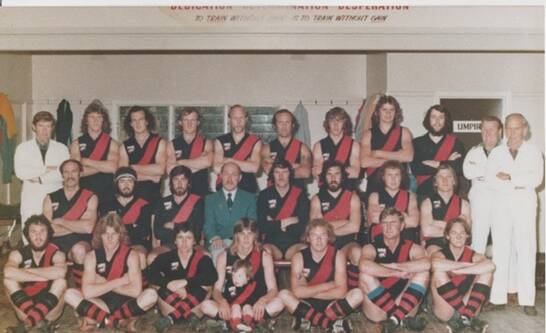
BG: The grand final celebrations were huge?
CM: It was a real eye-opener for me after coming from Melbourne. Just to see the joy on so many faces of supporters and what it meant to the town. It just made me realise how lucky I was to have left Melbourne and be part of such a momentous occasion for a small country town.
BG: You loved being involved in part of a community?
CM: Just the little things of walking down the street and people knew who you were. Football clubs are the heart and soul of these communities and when Beechworth had a good side, the town got excited and right behind the players.
BG: There was plenty of talent running around in the O&K league during that era?
CM: Some of the players that I rated highly were Greg Taylor from Bright and Neville Pollard from Milawa.
BG: Did you have many prisoners play for Beechworth during your era?
CM: There was none while I was there but there were a few in the 1974 grand final side. They banned prisoners from playing for a while after that.
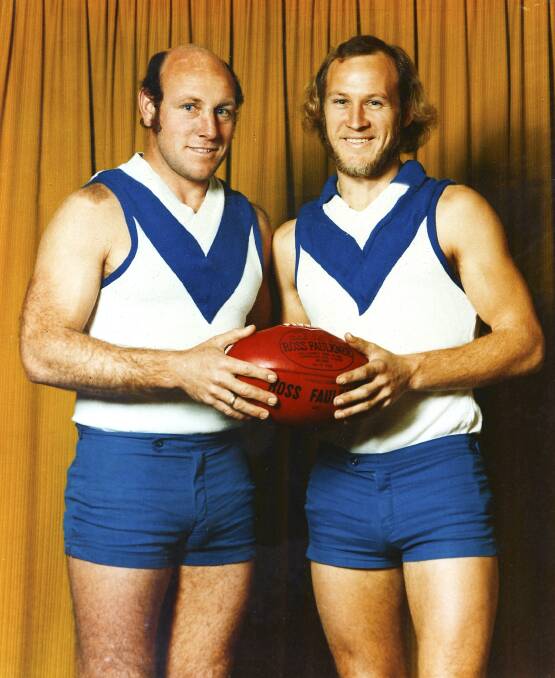
BG: The following season in 1980 you decided to have a crack at the higher standard of the O&M and joined Lavington?
CM: Ken Roberts was coach and I became close mates with Wayne Styles. I would often crash at Wayne's house so I didn't have to drive back to Beechworth. Warren Stanlake also looked after me when I first arrived at the club.
BG: Your O&M career was short-lived?
CM: I hated the trip from Beechworth to Lavington three times a week. I did my hamstring early in the season which frustrated me as a 24-year-old.
BG: You quit Lavington mid-season before clearances?
CM: Ken wasn't happy when I told him and punched a few blackboards in an angry outburst. He tried to make an example of me and told the playing group 'this is the sort of bloke that we don't want at our club.'
BG: You regret your decision to leave?
CM: I should have stuck the season out. But I got to meet some terrific blokes in Ralph Aalbers and Mark Stevens. I rated Wayne Styles as a tough footballer who would always have your back.
BG: Beechworth choked in the preliminary final in 1980?
CM: We were 10 goals up against Greta and let the match slip. I put it down to a premiership hangover from the previous year.
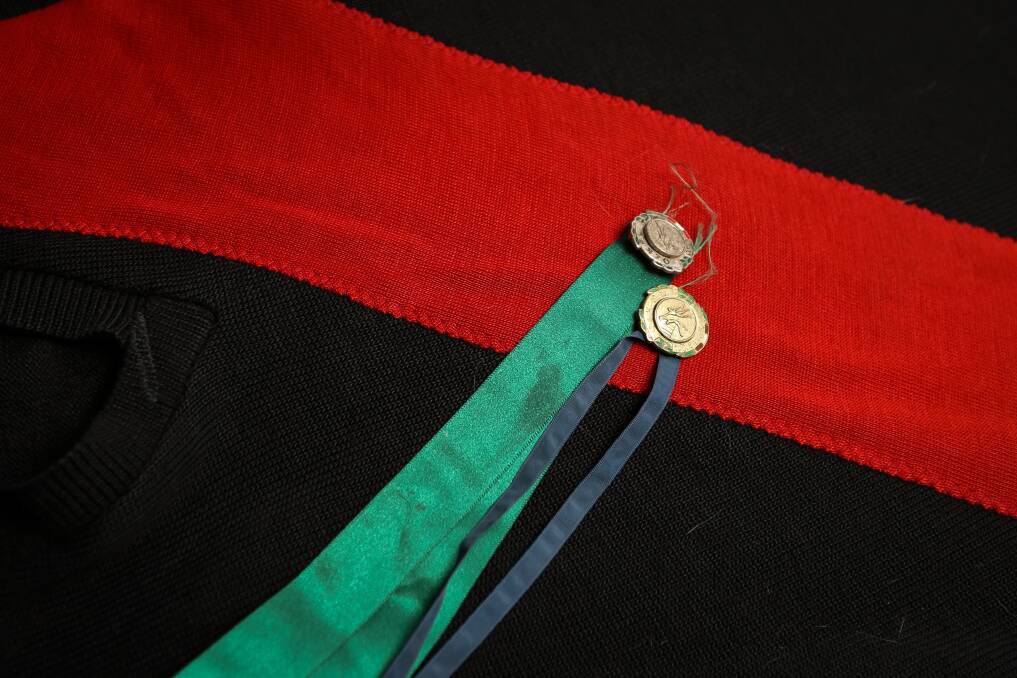
BG: You were a big fan of inter-league football?
CM: I represented both the O&K and Tallangatta league where I had the honour of being captain.
BG: In 1981 you dropped a bombshell and departed Beechworth to coach rival side North Wangaratta?
CM: I probably don't want to delve into that decision too deeply. The short version is I wanted to coach which was my motivation to switch clubs. I'll put my hand up and say it was a bad career move and I was a bit naive.
BG: In 1982 you dropped another bombshell and quit football?
CM: I was a bit disenchanted with what had happened the previous year and just needed a year off to recharge the batteries.
BG: The following season in 1983 you returned to Beechworth as coach?
CM: The club was having a bit of trouble finding a suitable coach and approached me to see if I would be interested in the job.
BG: You took the job?
CM: I took a bit of convincing because in my mind I wanted to remain retired. The local police officer Bob McWaters persuaded me to shelve my retirement plans.
BG: You got the band back so to speak and a lot of players returned from the 1978 premiership side?
CM: We just tried to target former players as recruiting priorities and we finished the season as minor premiers.
BG: You were raging favourites to win the flag?
CM: We flogged Milawa by 10 goals in the second semi-final to take the direct route to the decider.
BG: You had an unusual build-up to the grand final?
CM: The preliminary final between Milawa and Chiltern was a draw so it had to be replayed the following week.
BG: It meant by the time you met Chiltern in the grand final that you had only played one match in a month?
CM: It was hardly the ideal preparation and we got rolled by two goals.
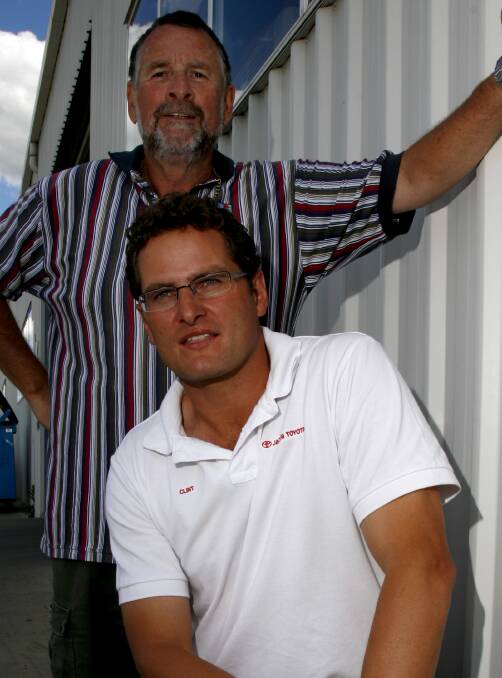
BG: You let a golden opportunity slip?
CM: Kudos to Chiltern who came from the elimination final to win it. To win four finals plus have a draw was an unbelievable effort by the Swans who were coached well by Terry Smith.
BG: You went into the Chiltern changerooms shortly after the match to congratulate them on the win?
CM: It's always a tough thing to do straight after a devastating grand final loss but I think I earnt a lot of respect from the opposition for acknowledging their against the odds victory.
BG: It was a lesson you learnt from Norm Bussell?
CM: I remember after we won the 1978 flag, Norm came into our rooms and said a few words. He even stuck around for a little while after and had a swig out of the premiership cup with us.
BG: The grand final loss still haunts you?
CM: It is my biggest regret of my career. It was my chance to deliver a flag to the club and community that I considered to be my home club and to get beat was bitterly disappointing.
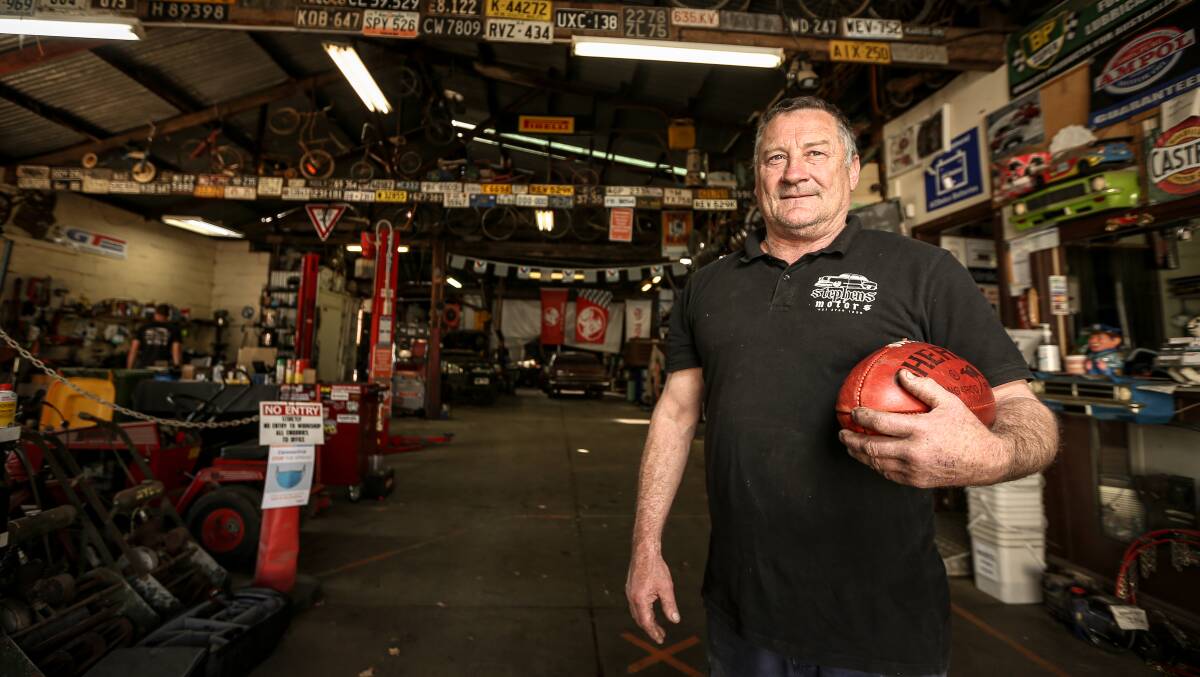
BG: You enhanced your reputation in 1985 after winning a second Clyde Baker medal?
CM: I was lucky enough to beat a more than handy player in Chiltern's Mark Stephens who I rated highly and had missed a few matches during the season.
BG: Greg Smith replaced you as coach in 1985?
CM: The club appointed Greg as coach over the off-season but then sacked him on the eve of the season. I reluctantly agreed to coach again after Greg got punted.
BG: You were stiff not to win a third Clyde Baker medal the following year?
CM: I polled 12 votes and Peter Duncan won with 22 votes but I missed 10 matches after breaking my wrist in round 8 and missing the rest of the season.
BG: In 1987 you joined Tallangatta Valley after getting a job transfer?
CM: Tallangatta Valley was advertising for a coach and I was lucky enough to get the gig.
BG: How did you go coaching the Hoppers?
CM: I coached for two seasons and we had a reasonable side and made finals both years.
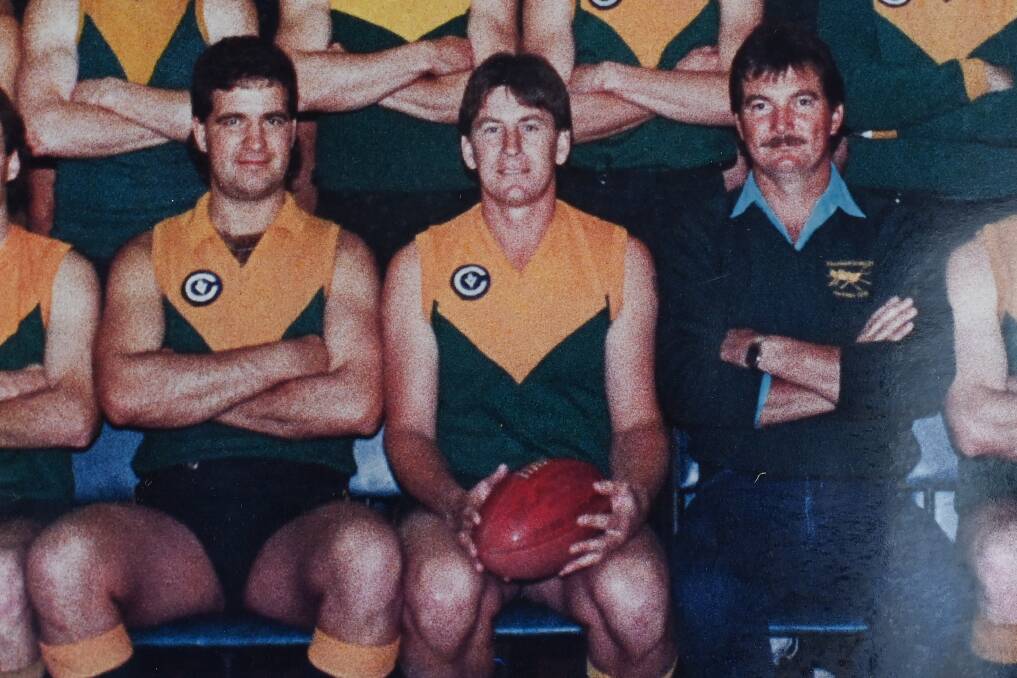
BG: After two years as coach you step down and are replaced by Bert Hollands?
CM: Bert masterminded a recruiting blitz and signed Greg Wood, Ian Butler, Barney Brown, and Mark McSweeney. There were some talented kids in Martin Garoni, Brett Garoni and Anthony Ross.
BG: Bert drove a van and used to pick a lot of the players up and take them out to training?
CM: For the entire year there was McSweeney, Peter Cannon, the two Garoni boys, Andy Whitsed, Anthony Ross and myself. I remember one night there were 13 of us in the van coming home from training.
BG: You felt it was good for team bonding?
CM: We had some memorable trips home. My wife used to complain that there would always be a trail of stubbies down the driveway after Bert dropped me off. I suspect it was McSweeney who used to stitch me up.
BG: Hollands was dubbed 'Elbows' by opposition sides. Was it warranted?
CM: Bert didn't mind throwing a few elbows but was a tough competitor who was hard at the contest. He was a protector of the younger players and you always walked taller when he was in the side.
BG: You were a huge fan of Hollands as a coach?
CM: Bert had a unique coaching style and the ability to bring a group of players together. He wasn't fire and brimstone but was able to connect with his players and get the best out of them.
BG: The Hoppers finished minor premiers?
CM: It was an incredibly wet finals series and they decided to rest the Sandy Creek ground after the first week of the finals.
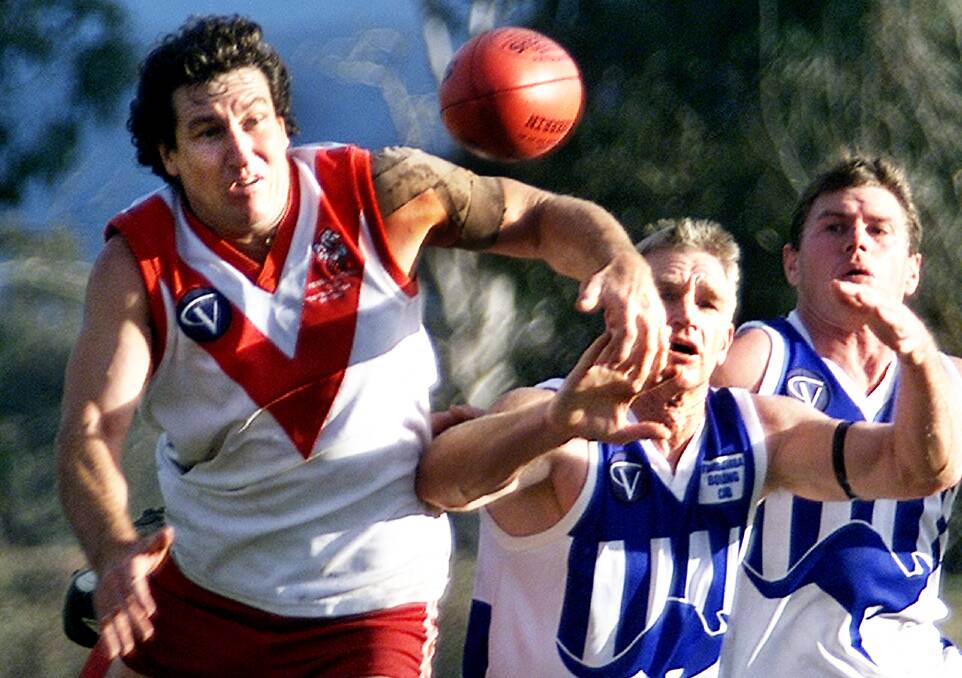
BG: You played Holbrook in the second semi-final at Bunton Park?
CM: The Brookers flogged us by 10 goals and I remember reading the headlines in The Border Mail Tallangatta is too old and too slow. Laurie McInnes, Matt Whitley, Robbie Mackinlay and Neville Lampe ran riot for the opposition.
BG: The Hoppers did have quite a few players 30 plus?
CM: Greg Wood, Barney Brown, Bert Hollands, Ian Butler and myself were either 33 or older.
BG: You faced Mitta United in the preliminary final?
CM: History says it's always tough to beat Mitta in finals but we flogged them that day.
BG: You carried a calf injury throughout the finals series and were in danger of getting dropped for the decider?
CM: I was lucky enough to have a good masseur in Col 'The Crunch Man' Trevaskis who kept me injury free for most of my career but there is not a lot you can do when you are carrying a calf injury.
BG: Your form suffered because of the injury?
CM: I was very fortunate to gain a start in the grand final side because I had been struggling to get a kick during the finals.
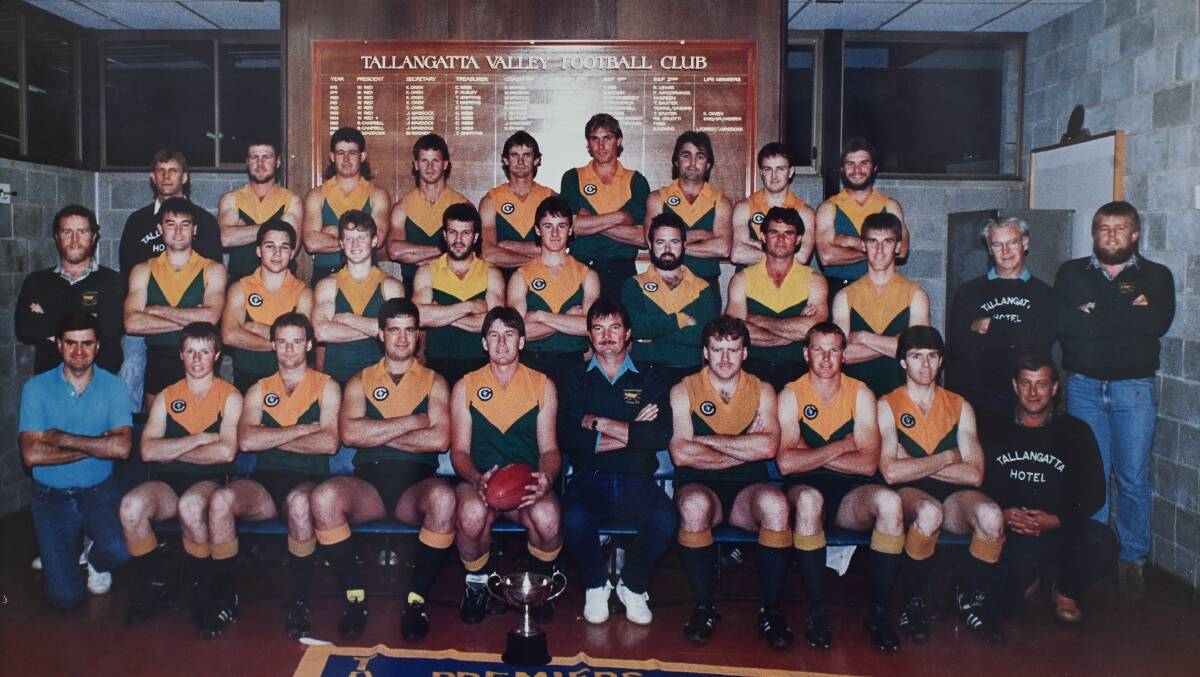
BG: Bert was going to drop you?
CM: Not Bert but there were a few other blokes on selection who put my name forward. I announced that I was going to retire after the grand final.
BG: You started on the pine alongside Peter Cannon?
CM: I did but it didn't take long to get on the field. Dave Healy dislocated his elbow and was carted off to hospital and Greg Lawrence broke his ankle and never played again. That happened in the first five minutes of the match.
BG: The Brookers would have been licking their lips seeing that?
CM: It gets worse. McSweeney strained his hamstring and had to play in a forward pocket and he was our best midfielder.
BG: Despite the odds being stacked against you, the Hoppers notch a famous grand final victory?
CM: I credit Bert with convincing us that we could still win despite the mounting injury toll. History says we won by five goals. It was an amazing turnaround from the second semi-final flogging.
BG: You finished the match injured?
CM: I broke my scaphoid in the final five minutes. I left my footy boots hanging on a hook in the changerooms and never played again.
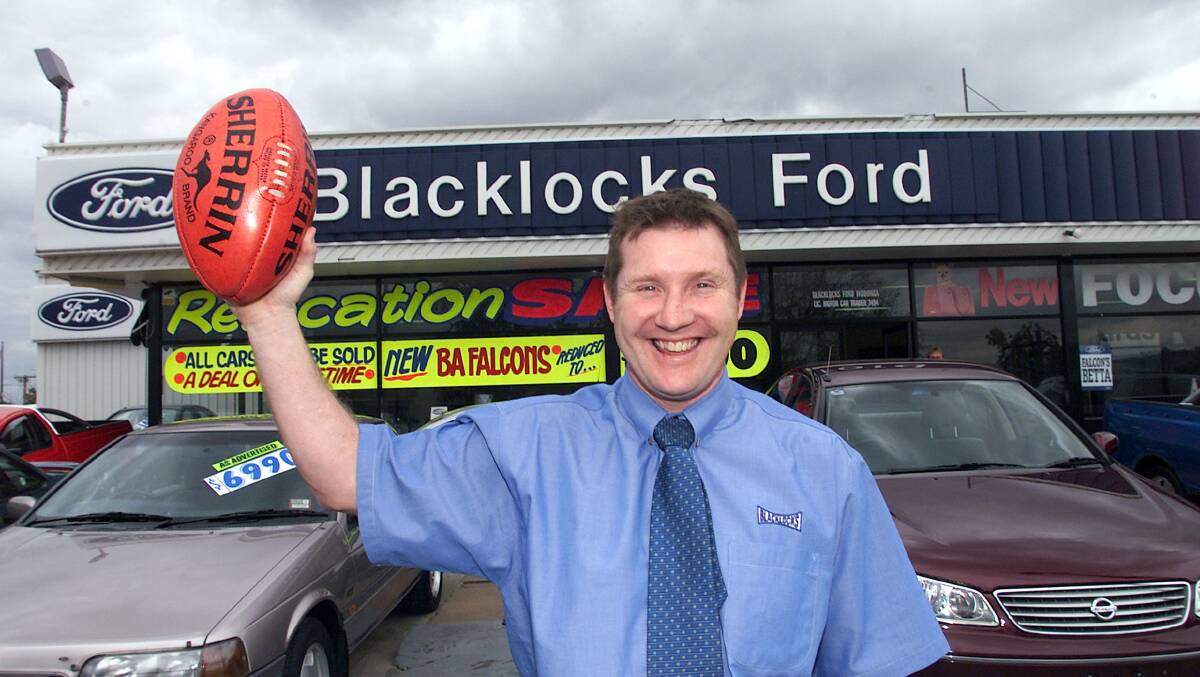
BG: Not a bad way to retire though?
CM: It was special to finish on the ultimate high. But I had lost a yard of pace and I knew the time was right to retire.
BG: You still stayed involved in football after you retired?
CM: I coached Kiewa-Sandy Creek thirds to a flag in 1999. I taught a lot of the kids in that side at Tallangatta High School. Ian Butler coached Tallangatta Valley thirds and Barney Brown the fourths that same season.
BG: You were also a selector at Kiewa-Sandy Creek under coach Simon Bone?
CM: Simon was a fantastic coach and an entertainer to work alongside.
BG: You have a lot of former footballers as neighbours on your property at Huon?
CM: My neighbours are Mark Hallinan, Paul Lonergan and Ian Simmonds. We don't mind catching up around the fire for a few beers and reminiscing about the glory days.






